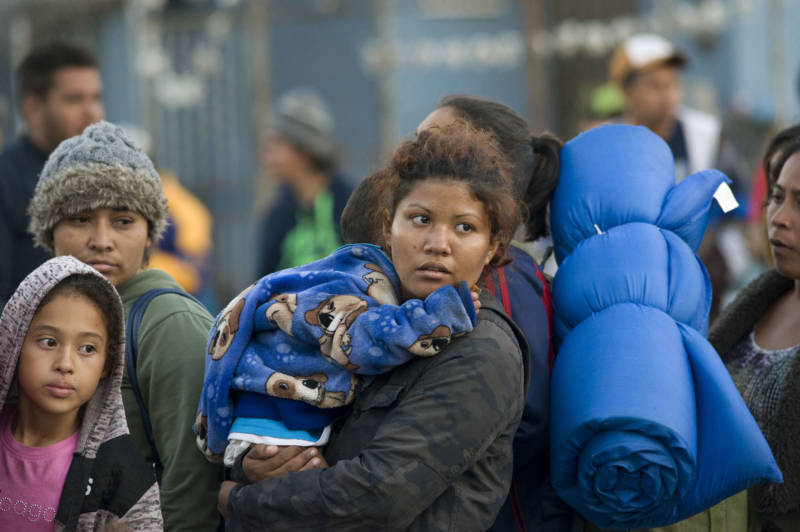The Department of Homeland Security, which oversees Customs and Border Protection, didn't respond to questions about how the rule will be implemented by CBP officers — or whether they'll start turning away asylum-seekers who do not qualify for protections under the new rule.
“This will be implemented in accordance with all applicable laws, regulations and policies, as well as international agreements," a DHS official said in a statement.
Central Americans who seek asylum in the U.S. have to travel to the southern border, said Hing, because it's impossible for them to apply for the protections from their home countries.
In 2017, the Trump administration ended an Obama-era program that allowed thousands of minors in El Salvador, Guatemala and Honduras to apply for humanitarian protections and join their parents in the U.S.
"There is no such thing as going to the U.S. Embassy in any of those three Northern Triangle countries and applying for asylum now," said Hing, adding that U.S. embassies don't have the authority to grant the protections.
Hing added that it's "unrealistic" for the U.S. government to require migrants to apply for — and be denied — humanitarian protections in countries like Mexico before pursuing claims in the U.S. An asylum rejection from the Mexican government, Hing said, often comes with a deportation order, so migrants might face additional hurdles to travel to the U.S. border to start another asylum application here.
Sen. Dianne Feinstein said the new rule was "not only illegal, it's heartless and cruel."
“These families are fleeing some of the most violent, dangerous countries in the world such as El Salvador, Guatemala and Honduras," she said in a statement. "Allowing them to seek protection in the United States isn’t a loophole, as the president says and Republicans continue to repeat, it’s a fundamental part of what makes us American."
This post has been updated. KPBS reporter Max Rivlin-Nadler contributed to this report from Tijuana, Mexico.

